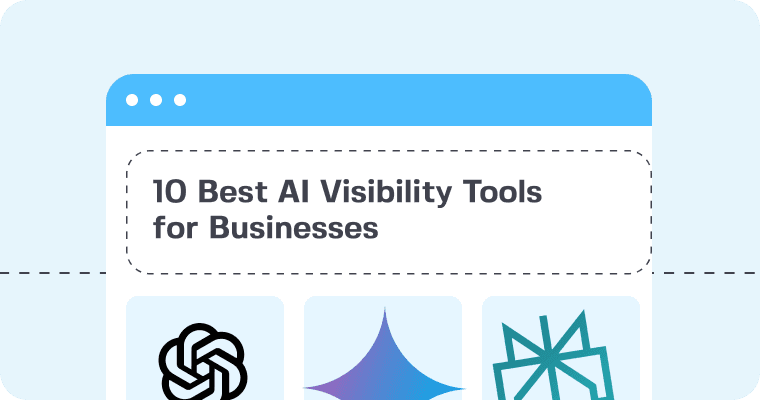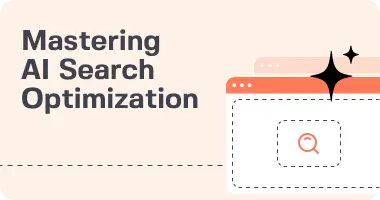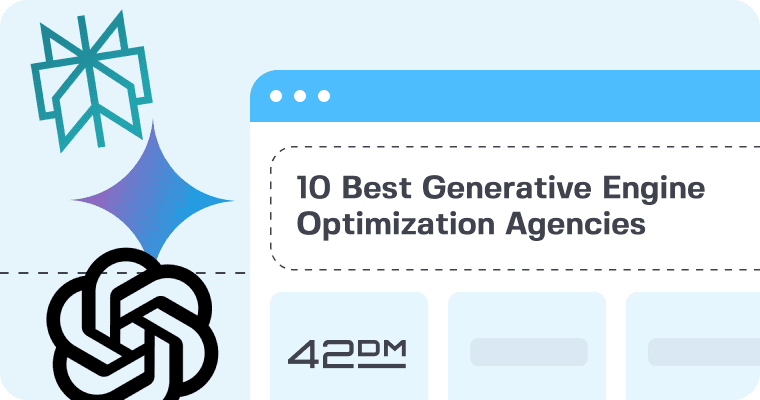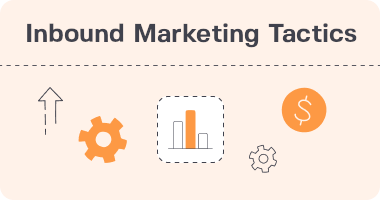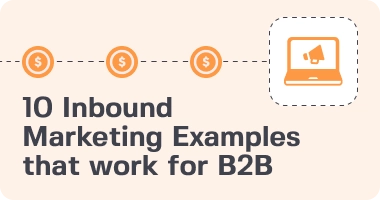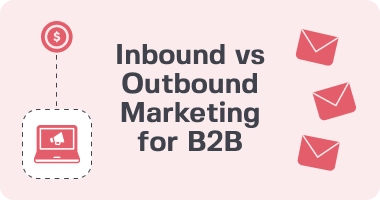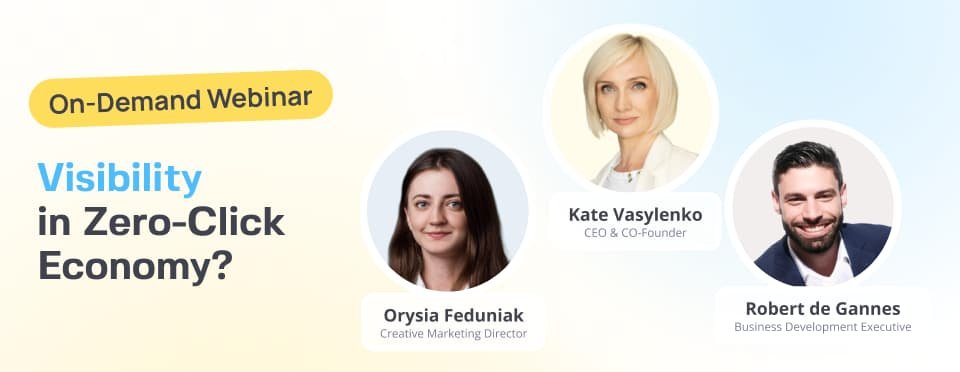Google remains the #1 search engine in the world and a pivotal platform for B2B tech companies seeking services, insights, and effective marketing outcomes. But is Google still the best channel for B2B marketing? Should businesses continue to rely on Google when developing and executing their marketing strategies, or look elsewhere for growth opportunities?
At the 2024 Google Cloud Conference, Google unveiled several significant updates, signaling a robust enhancement in technology and business strategies. These updates, including advanced AI capabilities and new marketplace features, are set to reshape the tech and business landscapes.
Will Google’s generative AI search kill SEO?
If you are in the US, you may have already seen the AI feature while searching on Google. Here’s how it looks:
These AI-generated answers are experimental, but they already provide many insights into the changes in Google search.
Firstly, for now, this feature is available mostly on mobile and doesn’t work for every single query. Instead, it focuses on short questions or “how-to” styled queries. Depending on the query, Google either provides the AI answer right away or shows the paid promotional pages first, as in this case:
And only then AI-generated version:
Note that while providing an AI-generated answer, Google also links to top resources where one can read more about the specific query. Only after displaying this whole list of pages does the #1 organically ranked SEO page appear.
This new search dynamic significantly alters the visibility of B2B content, and, by extension, your content marketing strategy.
What this means for your SEO strategy:
- Top-3 Priority: Your content must rank in the top three to be visible, especially for introductory, awareness-level topics. Otherwise, there is a high chance a user will never scroll to it. Being in the top-3, however, gives you a chance to be featured in an AI-generated answer.
- Long-Tail and Real Queries: All the easy “how-to” educational content is likely to be answered by AI, and many users will not browse further to websites for this type of content. Strategically, focusing on this is less beneficial. AI struggles with long-tail keywords and the real queries of your users. Focus on these to outmaneuver AI, which has difficulty with nuanced customer inquiries.
- Reduced Visibility of Traditional SEO Content.
- Beyond Keywords: Transition from keyword density to context-rich, conversational SEO.
- Engaging UX: Incorporate interactive elements and videos to boost website engagement.
- Authoritative Content: Emphasize expert opinions and human-first narratives to enhance authority and brand recognition.
- Brand Visibility: While direct clicks might decrease, visibility in search snippets boosts brand recognition, leading to potential direct visits.
Implications for your paid promotion strategy:
- Market Dynamics: Paid pages are still shown to users, but this may not always be the case. There is ongoing debate about whether Google will maintain the same level of paid promotion since it is their main revenue source. It’s crucial to closely follow market dynamics.
- Budget Reallocation: Don’t be afraid to reallocate your budget to more profitable channels.
- Potential Improvements through AI: There is a chance that AI-enhanced search could actually improve paid promotions.
- Subscription Models: If Google introduces a paid subscription for the use of AI assistants in search and Gmail, it’s likely that the standard model of SEO/advertising will persist. However, there may be a decrease in demand as some users opt for subscriptions. As demand decreases, advertising budgets may shift to other channels.
- User Intent: Focus on understanding your user intent. AI can significantly aid in this area, as better understanding of user intent leads to more effective AI content creation and potentially higher click-through rates.
Google x Voice search
Picture this: you’re cruising to the grocery store, all the while preparing for an important meeting with your team, and you’re doing it all effortlessly with just your voice. You ask ChatGPT or Siri to fetch the latest market stats and insights, and with a simple command, you have your presentation slides ready to roll—all without lifting a finger.
This level of convenience is already within reach with ChatGPT’s voice feature. But the future of voice search holds even more promise, especially if Google teams up with Siri to introduce AI-driven voice search. Imagine being able to conduct all your research and tasks hands-free, with Siri seamlessly sourcing information from the top-ranking pages on Google.
So, what does this mean for your content marketing strategy, heavily reliant on SEO rankings? Well, think about it. When you’re asking Siri for information, where do you think she’s pulling it from? Most likely, it’s the top-ranking pages—maybe the top 1, 3, or 5—that pop up on Google. It’s unlikely you’ll ask for a rundown of all 15 pages that answer the same query, right?
We’re inclined to think that voice search might just revolutionize the SEO landscape by generative AI search engine optimization agency.
What this means for your SEO:
- Enhanced Accessibility: It’s time to optimize your content for voice search, ensuring it’s readily accessible across devices, especially for users who prefer voice commands.
- Natural Conversations: Shift your SEO strategy towards more natural, conversational queries that resonate with spoken language. Think about the questions people would ask out loud.
- Local SEO Focus: With local searches being a big part of voice queries, beef up your local SEO efforts. Make sure your location info and business details are up-to-date and prominent.
- Snag Those Snippets: Aim to snag featured snippets. Voice search often pulls answers from these highlighted results, giving your brand more visibility.
- Seamless User Experience: Craft a user experience that seamlessly integrates with voice search. Think lightning-fast load times and content that’s easy to navigate, perfect for users on the move.
Potential acquisition of HubSpot
Let’s take a step back and consider Google’s trajectory. While paid ads have long been its main revenue stream, the rise of AI-driven quick answers is reshaping the digital landscape. Google now faces competition from comprehensive business solutions like Microsoft, prompting a need for expansion. Acquiring a leading CRM player could open new avenues for monetization, particularly in enterprise sales.
The rumored acquisition of HubSpot by Alphabet could revolutionize B2B marketing by integrating Google’s analytics prowess with HubSpot’s robust CRM tools. This collaboration could fuel more precise marketing campaigns and deeper insights into customer behavior.
Possible implications for B2B companies:
- Seamless integration of Google’s advanced analytics with HubSpot’s CRM functionalities, enhancing data-driven decision-making.
- Improved data capabilities and better targeted marketing campaigns, leveraging enhanced user profiling and behavioral insights.
- Better ranking for HubSpot-based website/content
- Easier content optimization
What’s next for Google?
Google is undergoing changes, prompting the question: should it still be your #1 marketing channel despite new features potentially reducing SEO effectiveness?
Uncertainty surrounds Google’s ability to maintain revenue and importance as AI diminishes the importance of promotions, its main revenue sources. This necessitates Google to reinvent itself. Amidst the emergence of platforms like TikTok and Instagram as significant search channels, particularly among younger demographics, Google faces the challenge of retaining its dominance. Refining algorithms and introducing new features are vital, but B2B companies must also adapt to diverse search behaviors across platforms.
Strategically, B2B companies must establish a multi-platform presence, tailoring content to suit different platforms’ dynamics and user behaviors. Leveraging Google’s AI enhancements is crucial, aligning content strategies with evolving search behaviors.
Key Considerations:
- Expand your digital presence to cover multiple emerging platforms, tailoring content accordingly.
- Leverage Google’s AI enhancements to refine content strategies.
- Work on your Inbound Marketing strategy with 42DM.
We can help you find the most profitable channels beyond Google, scale your content production with AI, capitalize on algorithm updates, prioritize expert-created content, and invest in omnichannel thought leadership.


